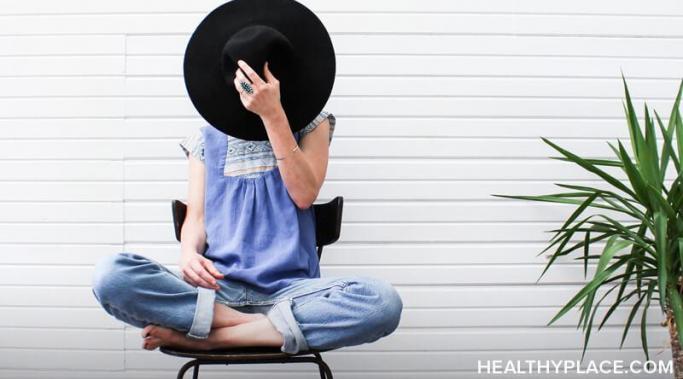I was diagnosed with schizoaffective disorder in my early 20s, and since then I’ve received many different reactions when disclosing my mental illness. Many people are supportive. Others are curious. Sometimes I face mental health stigma. Writing for HealthyPlace means my diagnosis is out there for anyone to see. I’m fine with that because I want to help and I want to fight stigma. However, in my day-to-day life, I choose whom I want to tell and when I want to tell them. Here are a few of the good, the bad, and the ugly experiences with disclosing my mental illness diagnosis, not necessarily in that order.
Peer support
A certified peer support specialist is a person in mental health or addiction recovery that uses his or her personal experiences to connect with and help others. I work for a community mental health agency where I provide emotional support and knowledge of resources to others in recovery. Being a certified peer support specialist allows me to give back to my community.
Volunteering aided my recovery from mental illness when I was diagnosed with schizoaffective disorder and bulimia in my early 20s. I volunteered for my local National Alliance on Mental Illness (NAMI) chapter, and it soon became a great opportunity that helped me take back my life and even lead to an internship. Here are five ways that volunteering can aid mental illness recovery that I discovered during my time at NAMI.
There are three advantages to mental health crisis text lines. Recently, a mental health consumer organization in the greater Indianapolis area started a mental health crisis text line--the 13th such text line in the nation. Also, there is a national mental health crisis text line at 741741 (Suicide Chat Hotline Options). This made me think about three advantages to crisis text lines and how they help mental health consumers in crisis.
Childhood mental disorders are not always the parents' fault. When I graduated from college, my mother dragged me to see a Christian psychiatrist who she was convinced could fix me. She asked the psychiatrist what caused my borderline personality disorder (BPD). The psychiatrist looked her in the eye and explained that BPD is caused by poor parenting. That is not always the case, and we as a society need to change our attitude that childhood mental disorders and illnesses are somehow the parents' fault.
Last week was National Crime Victims Rights Week, and while at a rally, someone gave me a pamphlet on domestic violence issues in the lesbian, gay, bisexaul, transgender, queer (LGBTQ) community. While domestic violence can affect anyone and can take many forms, the unique forms of domestic violence in the LGBTQ community are rarely discussed. I will focus on three types of domestic violence issues: strict gender roles, access to safe places, and threat of "outing" without consent.
Some years ago, the notion of peer support for the mentally ill became an important component of mental health recovery. The mental health community has embraced peer support as crucial to mental health recovery but how valuable is it?





